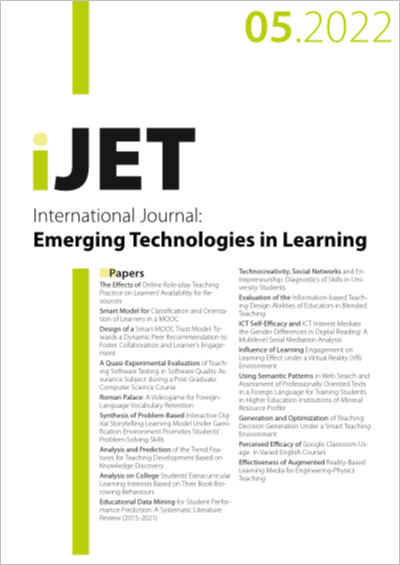A Quasi-Experimental Evaluation of Teaching Software Testing in Software Quality Assurance Subject during a Post-Graduate Computer Science Course
DOI:
https://doi.org/10.3991/ijet.v17i05.25673Keywords:
software testing, software engineering, software engineering education, active teaching methodologiesAbstract
Software testing is regarded as a key activity in the software development cycle, as it helps information technology professionals to design good quality software. Thus, this is an essential activity for the software industry, although with all its nuances high priority is still not being given to learning about it at an academic level. The purpose of this work is to investigate a teaching strategy for software testing which involves acquiring academic skills within a curriculum based on active teaching methodologies. A teaching model was designed for this to coordinate the different areas of a subject, and then a controlled quasi-experiment was carried out in a post-graduate course to evaluate the application of this model. The results obtained demonstrate that there was a considerable learning gain in the experimental group that adopted the teaching approach when compared with the control group that relied on a traditional approach. The student t-test was employed to determine the learning efficiency.
Downloads
Published
How to Cite
Issue
Section
License
Copyright (c) 2022 Isaac Souza Elgrably

This work is licensed under a Creative Commons Attribution 4.0 International License.



